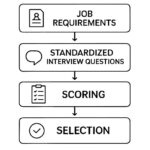Estate planning has evolved to meet the diverse needs of modern families, ensuring that assets are protected, managed, and transferred efficiently across generations. Today’s families often include blended households, multiple properties, and digital assets, making thoughtful planning essential. Key strategies include establishing wills and trusts, designating beneficiaries, and creating powers of attorney to manage financial or healthcare decisions if needed. Incorporating tax-efficient approaches and regularly updating documents to reflect life changes—such as marriages, divorces, or the addition of new dependents—can help minimize disputes and preserve wealth. Modern estate planning also considers digital footprints and long-term care provisions, offering peace of mind and financial security for loved ones in an increasingly complex and interconnected world.
Menu list
Understanding Modern Family Dynamics
Modern family dynamics have become increasingly complex, reshaping how individuals approach estate planning. Today’s families often include blended households, stepchildren, unmarried partners, and multiple generations living under one roof. These evolving relationships make traditional estate planning approaches insufficient without thoughtful customization. Clear communication, updated legal documents, and equitable distribution strategies are essential to prevent misunderstandings and ensure each family member’s interests are protected. Beyond wills and trusts, planning must also address healthcare directives, guardianship decisions, and digital assets, which play a growing role in modern life.
Working with experienced professionals can help families navigate these challenges with confidence. Trusted legal resources like CunninghamLegal.com provide valuable insights into creating estate plans that reflect today’s realities while complying with ever-changing laws. By recognizing the nuances of modern family structures, individuals can craft comprehensive strategies that safeguard their loved ones’ futures and preserve harmony across generations.
Incorporating Digital Assets
Today’s estate plans must go beyond bank accounts and real estate to address a growing class of digital assets. These can include everything from cryptocurrencies and NFTs to online businesses, iCloud photo libraries, and social media profiles. Failing to recognize and provide instructions for these assets can result in lost value and access issues for heirs.
For example, a well-designed estate plan might include an inventory of passwords and instructions for handling each digital account. As technology continues to evolve, the inclusion of digital assets is expected to become standard practice for estate planning professionals, with younger generations leading the charge.
Leveraging Technology in Estate Planning
Estate planning has not escaped the reach of high tech. Today, secure, cloud-based platforms simplify document creation and storage—turning what was once a months-long process into something manageable in just hours. These tools enable families, advisors, and beneficiaries to access documents promptly and securely, regardless of their location.
With the right technology, families can collaborate in real-time, ensuring everyone is kept informed about responsibilities and expectations. Cloud portals and e-signature platforms also streamline updates during life events while safeguarding sensitive information from unauthorized access.
Addressing Tax Implications
One of the most frequently changing aspects of estate planning is tax law. The “One Big Beautiful Bill Act” dramatically raised federal estate tax exemptions, allowing individuals to shield nearly $14 million from estate taxes, and couples almost $28 million. This increase opens up new possibilities for generational wealth transfer, charitable giving, and business succession.
However, these exemptions are not permanent, and future legislative changes could significantly alter the landscape. State estate taxes and inheritance taxes may also impact larger estates. Keeping up to date with the latest tax rules and leveraging strategies, such as irrevocable trusts, can help families minimize tax exposure and maximize the value passed on to heirs.
Regularly Updating Your Estate Plan
No estate plan should be set in stone. Life is full of changes—marriage, divorce, the birth of children, the death of loved ones, changes in residency, or the purchase of a new home. Often, people overlook the need for updates, leaving plans outdated and, sometimes, invalid. A thorough review every two to three years or after major life transitions is recommended to keep your estate plan current.
Periodic reviews ensure documents reflect your wishes, changes in the law, and your current family arrangements. Legal professionals are well-positioned to identify gaps or opportunities that may arise from tax law updates or changes in your asset mix.
Communicating with Family Members
Deciding how transparent to be about your estate plan is both an art and a science. While open communication can prevent surprises and contention later, too much information about inheritance or personal preferences can sometimes create conflict among beneficiaries. The best approach is often a balanced one: share the big-picture elements and key reasoning behind your decisions, particularly when your plan veers from what the family might expect. Scheduling periodic family discussions can also help clarify intentions and reduce the likelihood of future misunderstandings. Involving a neutral third party, such as an estate attorney or financial advisor, can further facilitate constructive dialogue and ensure everyone’s concerns are heard respectfully.
Seeking Professional Guidance
With the multitude of factors to consider—complex family situations, ever-changing tax laws, the rise of digital assets—it is increasingly important to seek out qualified estate planning professionals. Attempting a do-it-yourself approach or relying on outdated templates can lead to overlooked assets, legal ambiguities, and, ultimately, costly errors or litigation. Professional guidance not only helps you avoid common mistakes but also ensures that your plan is both comprehensive and resilient.
Securing the Legacy Ahead
Modern estate planning is about more than distributing assets—it’s about preserving family harmony, honoring personal values, and adapting to a rapidly changing world. By integrating digital considerations, tax strategies, and open communication, families can build plans that stand the test of time. With professional guidance and regular updates, estate planning becomes a proactive, living process that safeguards both wealth and relationships for future generations.





